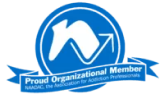Wondering how to start a rehab center? This guide walks you through every step, from understanding how to secure funding to obtaining licenses. We’ll outline crucial strategies to ensure your facility meets regulatory standards and provides top-notch care. Dive in to learn what it takes to set up a successful rehab center.
Key Takeaways
- Understanding the rehab center industry requires careful planning and adherence to legal standards to ensure successful operation and patient care.
- Choosing the right location and conducting a feasibility study are crucial steps that significantly impact the success of a rehab center.
- Securing funding, obtaining necessary licenses, and establishing policies and procedures are key components for launching a compliant and effective rehab facility.
- The number of treatment centers has grown substantially over the last 20 years. In 2023 there were 17,561 centers registered across the country

Choosing the Right Location for Your Rehab Facility
The location of your rehab facility can significantly impact its success. Consider factors such as zoning laws, market demand, competition, and real estate costs when selecting a site. Reach out to local officials and zoning authorities to understand the zoning requirements for how to start a rehab center in your chosen area.
Conducting a thorough market study helps in selecting an optimal location. Analyze demographic data, addiction rates, existing facilities, and service gaps to assess the demand for your services. Evaluate the proximity of your rehab center to other facilities to avoid direct competition.
Certain states may offer more favorable conditions for opening a rehab center. California is seen as an ideal location for substance abuse support services. This is largely due to its diverse population and significant need in that area. Choose a location that aligns with your strategic vision and operational goals, ensuring accessibility and convenience for your target audience.
Conducting a Feasibility Study
Conducting a feasibility study is a crucial step in assessing whether your proposed rehab center can be successfully implemented. This study focuses on practical aspects such as marketing, financial considerations, and operational feasibility. Conducting a thorough feasibility study reduces the risk of unforeseen challenges during the establishment phase.
Several key components make up a feasibility study. These components include in-depth marketing analyses, technical, financial, operational, legal, and regulatory considerations. This study helps identify local demand for specific types of rehabilitation services, guiding the design of your center. Stakeholder interviews can provide valuable insights into community needs and expectations, helping your rehab center meet local demands.
Securing Necessary Licenses and Permits

Obtaining the necessary licenses and permits is crucial for the legal operation of your rehab center. Licensing requirements vary from state to state, so it’s important to comply with local zoning laws and regulations. For instance, Opioid Treatment Programs (OTPs) must be licensed by the state where they operate and register with the Drug Enforcement Administration (DEA) to dispense medication as part of a treatment program.
Developing a comprehensive Policy & Procedures Manual is a critical part of obtaining licensure. This manual should include clear documentation of all therapeutic practices and client services offered, ensuring that your rehab center meets licensing standards and operational protocols. Adhering to state and local licensing statutes is crucial for obtaining and maintaining the necessary licenses, including aspects of program development.
Developing Policies and Procedures
Detailed policies and procedures are crucial for maintaining operational standards in your rehab facility. Defining these policies ensures adherence to best practices and compliance during licensing. A comprehensive Policy & Procedures Manual is not only essential for obtaining licensure but also for ensuring patient safety and ethical practices.
This manual should cover all aspects of your rehab center’s operations, from therapeutic practices to client services. Regulatory compliance during the operational phase is crucial to ensure patient safety and uphold ethical standards. By creating detailed policies and procedures, you can maintain high standards of care and operational efficiency.
Staffing Your Rehab Center
Staffing your rehab center is a critical component of its success. Staffing needs depend on factors such as the number of patients, the scope of services, and the level of care provided. Essential roles typically include medical professionals, support staff, and administrative personnel.
The C-Suite team, which often includes positions like Chief Marketing Officer, Chief Technology Officer, General Counsel, Medical Director, and lead doctors, plays a vital role in the management and strategic direction of the rehab center. Additional staff members, such as line staff nurses, human resource personnel, and case managers, support the C-Suite team in delivering high-quality care.
Drive, passion, and a desire to succeed are common traits among the leadership teams of successful rehab centers.
Crafting a Business Plan

A solid business plan is essential for attracting investors and providing a clear operational roadmap. It is also essential for obtaining funding. It helps to keep your marketing budget and objectives clearly defined.
Key components of a business plan for a rehab center include:
- An executive summary
- Market analysis
- Financial projections
- Operational cost management strategies
Financial forecasts should include estimates for revenue, operational costs, and a break-even analysis. A pro forma financial statement outlines projected financial performance, which is crucial for planning and attracting investors. By incorporating strategies based on patient feedback and data, you can ensure long-term success and continuous improvement.
Funding Your Rehab Center
Securing funding is a critical step in turning your vision into reality. Potential funding sources include private investors, bank loans, grants, and personal savings. Federal assistance programs like Medicare, Medicaid, and U.S. Department of Veterans Affairs benefits can also provide financial support.
Public funding for drug treatment often comes from state governments, covering a significant portion of operational costs. Specific federal grants target populations such as pregnant women and IV drug users, providing tailored support for their unique needs. Additionally, SAMHSA provides noncompetitive federal grants to help fund state drug and alcohol rehabilitation programs.
Organize your financial research and documentation before reaching out to investors or applying for grants. A pro forma financial statement can highlight projected financial performance and attract potential investors. Timing is crucial when applying for grants, as the process can be lengthy and competitive.
Accreditation and Compliance
Accreditation and compliance ensure quality care and operational standards in your rehab center. Accreditation from recognized bodies like CARF and the Joint Commission (JCAHO) is important for maintaining high standards of care. Accredited facilities undergo regular evaluations to ensure they meet rigorous standards of care and operational practices.
Insurance providers often prefer accredited facilities when determining coverage for treatment services. The detailed application and review process can make achieving accreditation take more than a year. Continually meeting accreditation requirements is crucial for retaining your accredited status and demonstrating your commitment to quality care.
Designing the Physical Layout
Designing the physical layout of your rehab facility should focus on patient safety and comfort. The layout must comply with JCAHO and local zoning laws. A tranquil environment can significantly influence a patient’s commitment to recovery, aiding in relaxation and reflection.
Privacy is also crucial in a rehab center, allowing patients to focus on their recovery without external distractions. Gender-specific residences in a residential recovery center can foster a supportive environment by allowing individuals to share their experiences with peers who may have similar backgrounds.
Flexibility in space design is essential to accommodate the diverse needs of different patient populations.
Now that you’ve got the legal, and foundational steps complete, you need to consider how you’re going to market your new treatment center.
For any new facility, effective marketing for rehab centers can make the difference in connecting with those who need your services.
Crafting Your Digital Marketing Approach

Search Engine Optimization (SEO)
Effective drug rehab SEO will elevate your online presence. This approach connects those seeking your services and fosters credibility through high organic search rankings. Tailoring your online content to align with specific search queries is essential for drawing in more clients who are looking for the exact care you offer.
- Conduct in-depth keyword research to address the needs of your target audience.
- Optimize on-page elements with keywords (titles, meta descriptions, headers).
- Produce relevant, authoritative content to establish your expertise.
Pay-Per-Click Advertising
Given that very few look past the first few pages of online search results, it’s critical to ensure your center’s visibility by leveraging addiction treatment PPC advertising. Platforms like Google Ads are designed to place your facility prominently at the top of search results. You invest in actual clicks, obtaining direct traffic instead of mere ad impressions.
- Invest in Google Ads to secure top placement in search results.
- Explore diverse advertising channels, from banner ads to sponsored video content.
- Utilize analytics to monitor click-through rates and optimize campaigns accordingly.
Building Connections Through Social Networks
Harness the power of social networks to connect with thousands of potential clients daily. Profiles on platforms like Facebook, Instagram, and Twitter introduce your rehab center to prospects as part of their social browsing.
- Share updates, successes, and community stories through concise, engaging posts.
- Engage with program graduates to strengthen your online community.
- Utilize targeted advertising to reach individuals interested in treatment services.
Optimizing Your Treatment Center’s Website
An optimized and user-friendly addiction treatment website is pivotal to marketing your rehab center. Aim for simplicity and navigability to resonate with those in search of assistance.
- Design with the user experience in mind: intuitive navigation and clear calls to action.
- Ensure high search engine ranking to attract more visitors.
- Incorporate content that emphasizes the distinct advantages of your treatment services.
- Adopt a mobile-responsive design to enhance accessibility and user engagement.
Implementing Evidence-Based Practices
Implementing evidence-based practices (EBPs) in your treatment programs ensures effective patient outcomes and enhances your rehab center’s reputation. EBPs integrate the best research evidence with clinical expertise and patient preferences, which is crucial for successful substance use disorder treatment.
Addressing trauma as an underlying condition is key to better patient outcomes. Incorporating outdoor areas and natural elements can significantly enhance the therapeutic experience. Designing spaces for community interaction fosters camaraderie and support, essential for recovery.
Technological innovations like telemedicine and robotic-assisted therapy are also enhancing rehabilitation service effectiveness and patient satisfaction.
Managing Payor Contracts
Proper management of payor contracts is essential for the successful operation and profitability of your rehab center. A good contract management system should evaluate every aspect of payor contracts and alert management to changes or issues. Effective management tools are critical to maintaining financial health in your organization.
Conducting a cost analysis allows rehab centers to assess service delivery costs versus reimbursement rates, supporting informed negotiations. Understanding the specific reimbursement rates and how they relate to Medicare rates is crucial for effective contract management.
Comparing expected payments against actual reimbursements regularly helps highlight discrepancies in revenue management.
Launching Operations
Launching operations is the final step in bringing your rehab center to life. Milieu management is crucial as it affects patient outcomes and recovery rates. The goal is to create a safe, comfortable space for patients and staff.
After launching, implement and organize processes and systems collectively. The mission statement serves as a foundational guide for all operational planning, ensuring that your rehab center stays true to its core values and goals.
Conclusion
Learning how to start a rehab center is a complex but rewarding journey. By understanding the industry, choosing the right location, conducting a feasibility study, securing necessary licenses, and developing comprehensive policies, you lay a strong foundation for success. Staffing your center with passionate and skilled professionals, crafting a solid business plan, and ensuring proper funding are crucial steps in turning your vision into reality.
Accreditation and compliance ensure your rehab center meets high standards of care, while a well-designed physical layout and effective marketing strategies attract and retain clients. Implementing evidence-based practices and managing payor contracts efficiently further enhance your center’s reputation and financial health. As you launch operations, staying true to your mission statement will guide you in providing quality care and making a positive impact on your community.
Frequently Asked Questions
What are the essential steps to start a rehab center?
To start a rehab center, it’s crucial to conduct a thorough feasibility study, secure necessary licenses, develop a solid business plan, and implement evidence-based practices. These foundational steps will ensure your center operates effectively and complies with industry standards.
Why is a feasibility study important?
A feasibility study is crucial as it evaluates the practical aspects of implementing a proposed rehab center, focusing on marketing and financial viability. This assessment minimizes risks and helps ensure the project’s success.
What licenses and permits are needed to open a rehab center?
To open a rehab center, you must obtain state-specific licenses, DEA registration for opioid treatment programs, and ensure compliance with local zoning regulations. Additionally, a comprehensive Policy & Procedures Manual is essential for legal operation.
How can I fund my rehab center?
To effectively fund your rehab center, consider a mix of private investors, bank loans, grants, and federal assistance programs such as Medicare and Medicaid. Organizing thorough financial documentation will enhance your ability to attract potential investors.
What is the importance of accreditation for a rehab center?
Accreditation is crucial for a rehab center as it verifies adherence to high care standards, enhancing trust with clients and insurance providers while ensuring compliance with state regulations. This not only boosts credibility but also signifies a commitment to quality health services.
Book a Discovery Call
Schedule a 30-minute discovery call to discuss your current strategy. We’ll talk about the best ways to leverage digital marketing to achieve your treatment center’s goals, and how a sustained campaign with LTR has the potential to drive a steady flow of admissions for your center.
If you prefer to speak with someone now please call 855-876-7238.

Content written by rehab marketing expert Matthew Travers
Co-Founder
Matthew Travers is a seasoned digital marketing leader with 22 years of experience, including the last decade dedicated to addiction treatment and mental health marketing. He is passionate about developing impactful strategies that combine deep expertise in SEO and conversion rate optimization with a focus on aligning business goals to innovative, results-driven solutions.

